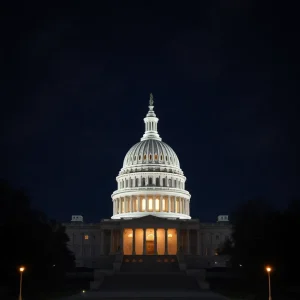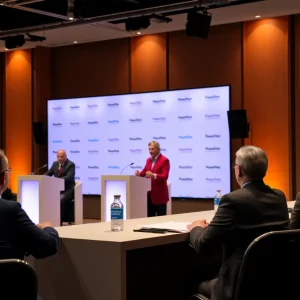Birmingham’s Charter Schools Shine in Academic Performance
BIRMINGHAM, Ala. – A recent study has revealed some promising news for Alabama’s public charter schools. According to research conducted by the Education Policy Research Consortium, these schools are doing better academically compared to traditional public schools. The findings were presented at the New Schools for Alabama conference, where charter school officials and experts congregated to discuss innovations and successes.
Charter Schools Outperform Traditional Schools
Researcher Andrew Pendola from Auburn University highlighted key metrics like proficiency and growth on standardized tests to measure success. “Charter schools are, in general, about 5.6 percentage points higher in terms of proficiency,” Pendola stated. Not only are charter schools excelling in proficiency, but they also showed a slight advantage in academic growth, with students improving at a rate of 0.4 percentage points higher than their peers in traditional schools.
One of the study’s most heartening revelations is how well charter schools are serving historically underserved groups. “Black, Hispanic, economically disadvantaged, special education, or limited English proficient students are all performing roughly 10 or more percentage points higher than their traditional public school peers,” Pendola noted. This news is particularly encouraging as it suggests that charter schools are effectively addressing disparities in educational outcomes.
Examining Funding and Outcomes
Researchers also delved into how spending impacts student performance. The good news? Public charter schools are seeing about the same return on investment as traditional public schools. However, they have a unique advantage in generating more academic value from the resources available to them. This means that they are utilizing their funding wisely to enhance educational experiences.
Networking and Learning Opportunities
The conference served as a great opportunity for charter school officials to learn from one another. Tyler Barnett, CEO of New Schools for Alabama, emphasized the importance of collaboration, stating that with 17 charter schools serving around 7,500 families in Alabama, it’s essential to share ideas and strategies. “The hope is that we can bring folks together to share common strategies to improve the educational experiences that kids get access to,” Barnett explained.
Student Voices Matter
During the conference, students took to the stage to share their experiences in charter schools. Chaiyah Woods, a junior at the Alabama Aerospace and Aviation High School, expressed her enthusiasm for her education. “I’ve never felt as engaged as I do now,” she enthused. Woods shared her aspirations to become an aviation mechanic and how her school is helping her get there, including hands-on experience working under a certified aviation mechanic.
The Urgency of Addressing Learning Loss
In a keynote address, education advocate Geoffrey Canada stressed the importance of addressing the learning loss experienced during the pandemic. “Those young people who were already behind are further behind,” he warned. He called upon educators to take immediate action to support students in catching up, urging Alabama’s charter school leaders to continue to innovate and adapt in these challenging times.
Modernizing Funding for Future Success
Another crucial topic was the need to modernize Alabama’s school funding formula. Mark Dixon, President of A+ Education Partnership, pointed out that the current formula was created three decades ago and doesn’t reflect the current landscape that includes charter schools. He emphasized the importance of considering the needs of charter schools, particularly since they receive, on average, $2,700 less per student than traditional public schools.
Creative Solutions for Funding Challenges
To address funding challenges, charter schools often require creative financing solutions. Chris Reynolds from New Schools for Alabama discussed the concept of “year zero” finance, which presents a challenge due to lenders perceiving it as high risk. The struggle to secure long-term financing complicates matters further, but there is hope through philanthropic support. Notable sponsors, including Bloomberg Philanthropies, have pledged millions toward various educational initiatives in Alabama.
With the gathering in Birmingham, it was clear that Alabama’s charter schools are poised for continued success, driven by solid performance metrics, community collaboration, and a commitment to serving all students effectively.


























